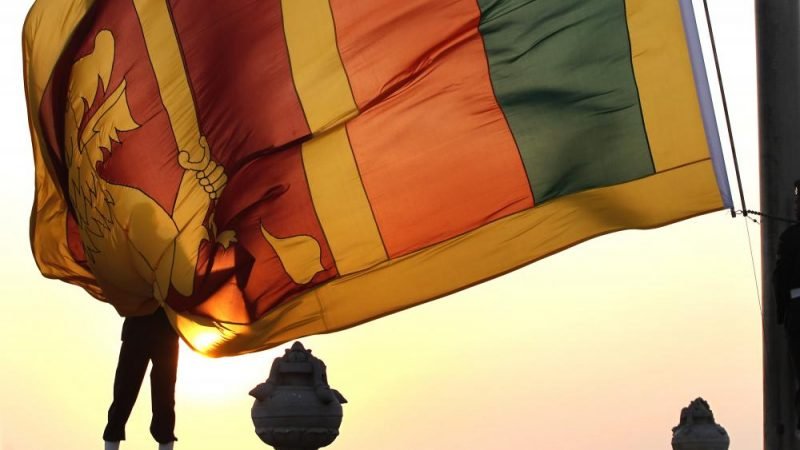Jeopardy in Jaffna

Former President of the United States of America Dwight D. Eisenhower had once quoted, “If a political party does not have its foundation in the determination to advance a cause that is right and that is moral, then it is not a political party; it is merely a conspiracy to seize power.”
With the current events unfolding in the island nation of Sri-Lanka it seems that the Rajapaksha brothers have captured power with a ‘cause’ i.e. repealing the 19th amendment and introducing the 20th amendment to the constitution, the efficacy of which is up for question. Since last November, the country has witnessed two historic elections, one in which political veteran Gotabaya Rajapaksha won the Presidential seat and next in August, where Mahinda Rajapaksha, former President won the Prime Ministerial seat. The 19th amendment was introduced by the former UNF party leaders- President Maithripala Sirisena and Prime Minister Renil Wickremesinghe. The Amendment was seen as a personal blow to the brothers, with provisions like the elimination of dual citizenship that directly endangered their political careers. Nonetheless, victory kissed their feet despite odds by helping them secure a two-thirds majority in the elections. The new government of Sri Lanka Podujana Peramuna has five members of the Rajapaksha clan holding key offices- Defense, Finance, Cultural Affairs, Urban Development, Internal Security, Irrigation, Home Affairs, Disaster Management, Youth and Sports Affairs.

What is the 20th Amendment?
The 20th amendment is almost like a counter strike against the 19th amendment constituted in 2015. The 19th amendment was seen as a step towards a more progressive democracy and hailed as a ‘watershed’ moment in Sri-Lanka politics. Despite loopholes being pointed out by experts, people believed that the 19th Amendment made the political process more participatory. It adopted a system of checks and balances by limiting the powers of President and decentralizing the political structure and restructuring the hierarchy. However, the provisions of the 20th amendment have a stark difference from the former. As per the draft of the 20th amendment, the President assumes full executive power. It also abolishes the Constitutional Council with a Parliamentary Council, minimizes the representation of civil society bodies, the Election Commission including a few other independent commissions will be abolished. The appointment of the Ministerial portfolios will be the responsibility of the President, removal of the Right to Information Commission. The President is protected against any fundamental right petition against him along with proceedings. The President can also dissolve the parliament within one year of formation. At present, Prime Minister Mahinda Rajapaksha has set up a nine-member committee to study the conditions under the 20th amendment and called for recommendations. It is being debated whether all the provisions of the former amendment will be eliminated or some will remain legally enforceable. A few voices are also uttering the word ‘referendum’ but there has no response about it from the government.
Perils of Transition
A section of media and civil society are criticizing the 20th amendment draft. Experts believe that it will reduce the share of free speech, and silence dissent and opposition. One also needs to introspect the meddling with the Constitutional provisions for the facilitation of political gain. Secondly, the proposed amendment can also be seen as an effort by the Rajapaksha brothers to hold onto their political offices for the future. Some are skeptical that it might pave the way for autocracy in Sri Lanka. The questionable step towards abolishing independent commissions is seen as a way to restrict voices of the ordinary people especially minorities. The 20th amendment is facing flak from within the SLPP party and the future will predict if this resistance leads to friction within the newly formed government. The religious communities, Buddhists and Christians of the country are criticizing the government’s efforts to repeal the 19th amendment as they believe that it will severely undermine the democratic ethos of the country and lead to authoritarianism. The pillars of democratic spirit- judiciary and media will be threatened as absolute executive power will be bestowed on the President. The 20th amendment in this context can be seen as providing a smooth trip towards the new Constitution by ensuring that independent voices can be censored for the government’s benefit. In the past, many members of the Rajapaksha clan have been accused of corruption and money laundering but almost all of the charges have been dropped. President Rajapaksha has already constituted a committee to formulate and a new constitution for the island. Human Rights Watch and various other human rights organization have called out the Rajapaksha government over suppression of dissent and opposition, and launching a crackdown against journalists and activists in the country.

Island Politics in the future
Sri Lanka is battling a major economic crisis, it is debt-ridden to China and on the way to secure another loan. Considering the current context, it will be a gripping watch to see the government function in these circumstances as well as maintain diplomatic relations with the neighbouring countries, with nations in the South Asian region loggerheads at with one another. There are several points of contention between India and Sri Lanka, the 13th amendment and the fishermen’s issue. At the same time, with countries of Global North moving towards an anti- China rhetoric, questions of economics and trade might determine Sri-Lanka’s relationship with China. Similarly, within the country, it will be interesting to witness the policy-making and decisions of the Rajapaksha kin that combat the current crisis.


















